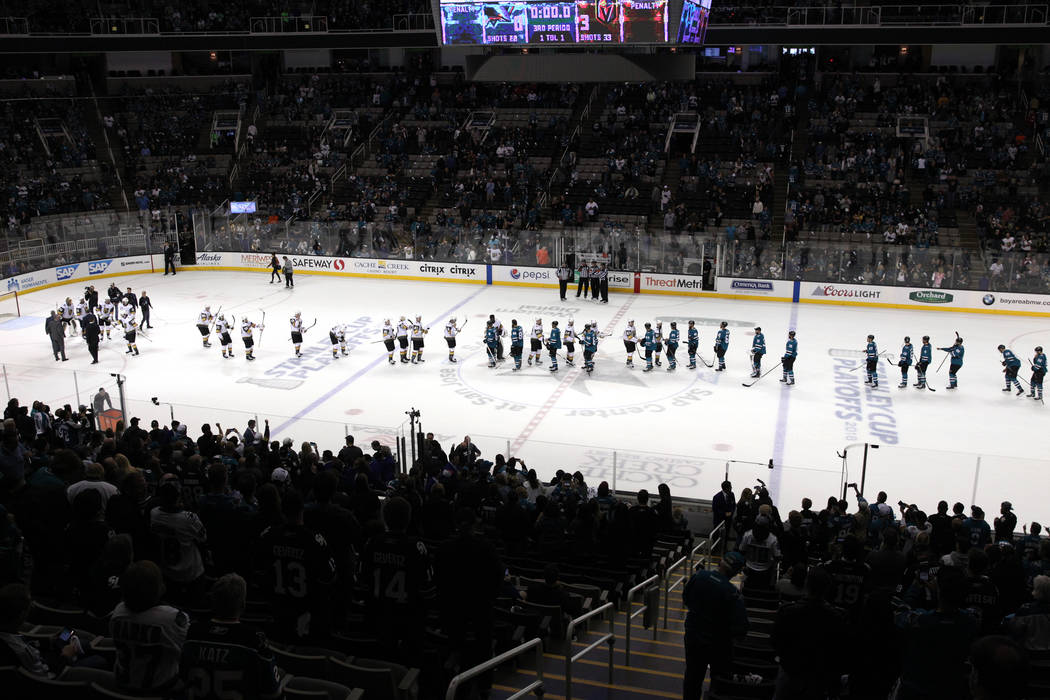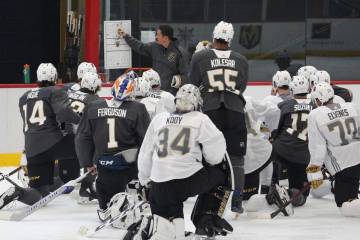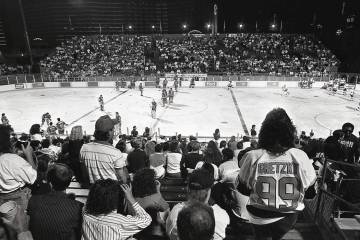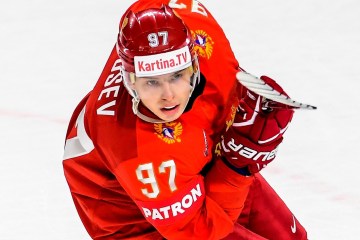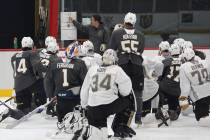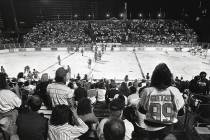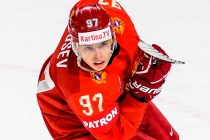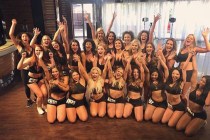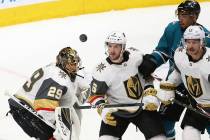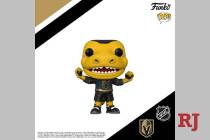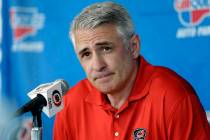NHL’s handshake agreement is a tradition worth preserving
Hockey has more traditions than one can shake a high stick at.
Throwing an octopus onto the ice in Detroit or booing NHL Commissioner Gary Bettman at first sight notwithstanding, the handshake at center ice after a playoff series remains one of its most endearing.
“I just think it’s a respect thing,” Golden Knights alternate captain Deryk Engelland said after going through the receiving line for the second time on the winning side after his team eliminated the San Jose Sharks in six games. “You go in a seven-game series, the rivalries that are created, the chippiness and all that (stuff).
“At the end of the day, it’s great for one team and not so good for the other. But in that respect, it goes a long way in showing how respectful the game is.”
No one knows for sure how and when the handshake line started, only that it has been a hockey tradition for as long as Zambonis have been roaming the ice.
The cool thing about it is there really is no protocol.
The #Handshakes line... a hockey tradition.
Sid and @ovi8 displaying class. #StanleyCup pic.twitter.com/VeJvYFzkAP
— NHL (@NHL) May 8, 2018
Handshake and a tap
After the final horn sounds and a series ends, one team celebrates and rubs the head of the winning goalie. The other team stands by morosely. Sometimes as the winning team is making merry, players on the losing side prop a chin upon the butt end of a stick and watch with forlorn expressions.
At the appropriate time — both sides seem to know when — the players skate to the neutral zone to wish each other well in the next round or the next season, but never on the golf course the next day, because that would be rubbing it in.
A simple handshake usually suffices. Sometimes players who know each other, or have battled each other tooth and nail, will briefly hold up the line. You might see a player on the winning side tap a player on the losing side on his sweater, near his heart.
This is when the announcers utter soliloquies about the humanity of the game and the sportsmanship of its competitors. The best hockey announcers just let the poignant pictures tell the story as fierce rivals over the past fortnight put their differences on ice.
Such as Evander Kane of the Sharks and Pierre-Edouard Bellemare of the Knights.
During the first game of the teams’ second-round series, Kane was suspended for a cross-check on Bellemare, who still was sporting remnants of a facial bruise during practice this week. Bellemare said all was forgotten when the sides shook hands at SAP Center in San Jose.
“The game goes fast, and sometimes there are hits (to) the wrong spot,” said the Knights’ checking line forward with the hard nose and bruised eye socket. “But nobody’s a bad guy off the ice.
“When it’s over, they congratulate us, said it was a good series and let’s move on.”
Easy for Bellemare to say.
Easy for most guys to say.
Not easy for all guys to say.
Grudges held
Although the carryover of hostilities is infrequent in the handshake line, a few guys have refused to let bygones be bygones.
“I can’t believe I just shook the guy’s (freaking) hand,” Detroit Red Wings center Dino Ciccarelli famously said after Claude Lemieux of the Colorado Avalanche checked Kris Draper into the boards from behind, knocking Draper out for of Game 7 of the 1996 Western Conference Final with a broken jaw, nose and cheekbone and a concussion.
After a first-round series in 2008, New Jersey Devils goalie Martin Brodeur would not shake hands with New York Rangers instigator Sean Avery after Avery had waved his hands and stick to distract him during a power play in Game 3.
The year before, Red Wings defenseman Chris Chelios skated off the ice after the Western Conference Final without shaking hands with the victorious Anaheim Ducks. Chelios said his emotions got the best of him, and he later spoke of the goodwill engendered by the handshake. Kids should learn it, he said.
Feisty goaltenders Billy Smith of the New York Islanders and Gerry Cheevers of the Boston Bruins also were not fans of the handshake and were known to skip it.
But they are exceptions to a long, long rule of sportsmanlike handshakers and sweater tappers.
Show of respect
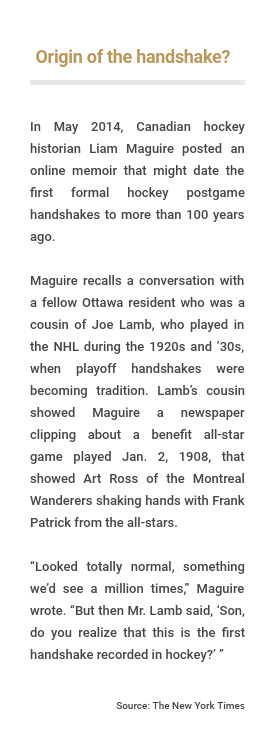
“This is kind of new for me,” Knights rookie forward Alex Tuch said after the San Jose series. “But with hockey players it’s such a hard-fought battle for the entire series. You gain a lot of respect for the opponent. I gained a lot of respect for the guys on San Jose, the whole team, in fact.
“Shaking hands shows respect, and I think it’s very much needed.”
Bellemare agrees, especially given how hockey is structured.
After football games, players often meet and congratulate one another as they walk off the field. The same goes with NBA fist bumps after a hard-fought game. In baseball, it is common for players to swap pleasantries on the bases during a game.
“In the NHL, you don’t shake hands all year, only in the playoffs, when the playoffs are over,” Bellemare said.
“It’s a sign of respect. It’s a good battle, sports. And at the end of the day, no matter what happens, nobody is a bad guy, and we’re just trying to do the best for our team.”
So at the end of a series and the other guy’s season, you shake his hand and tap him on the sweater. It just seems like a sporting thing to do.
“We are competing against each other, and when the series is over, it’s time to congratulate,” Bellemare said, the bruise under his eye getting less noticeable with every passing day.
More Golden Knights: Follow all of our Golden Knights coverage online at reviewjournal.com/GoldenKnights and @HockeyinVegas on Twitter.
Contact Ron Kantowski at rkantowski@reviewjournal.com or 702-383-0352. Follow @ronkantowski on Twitter.



